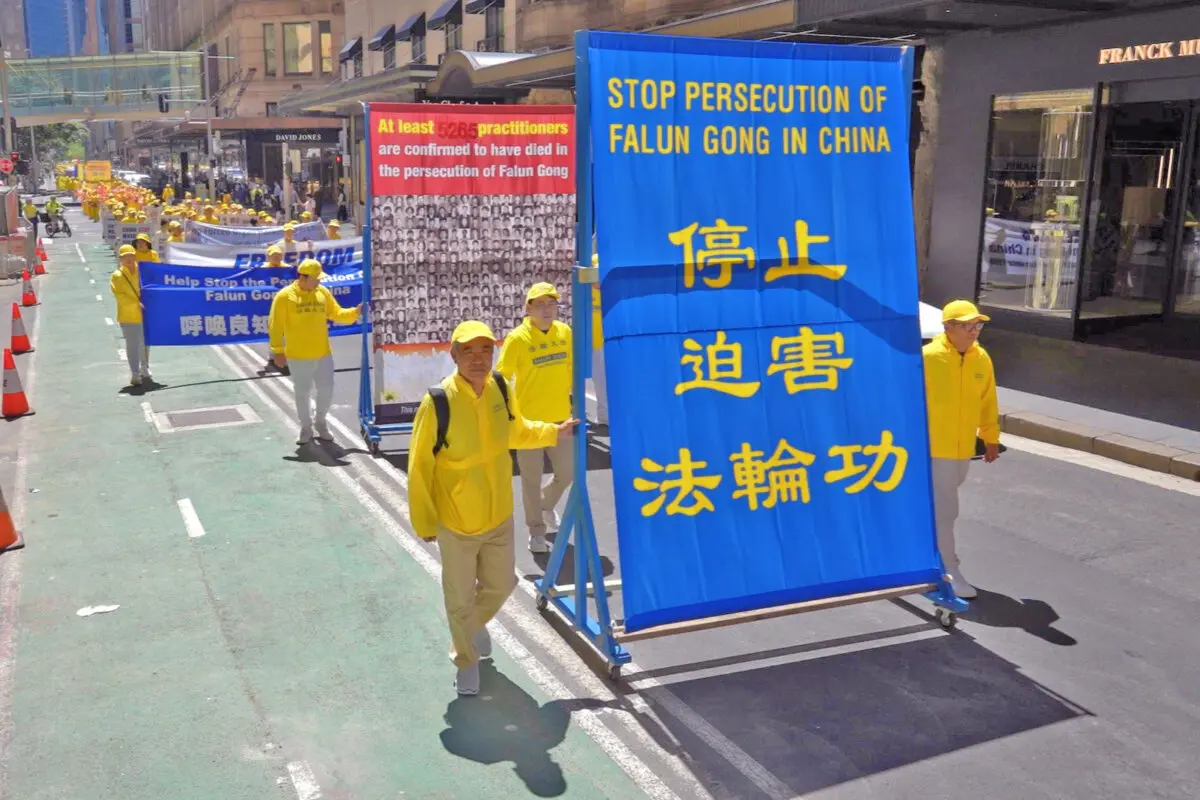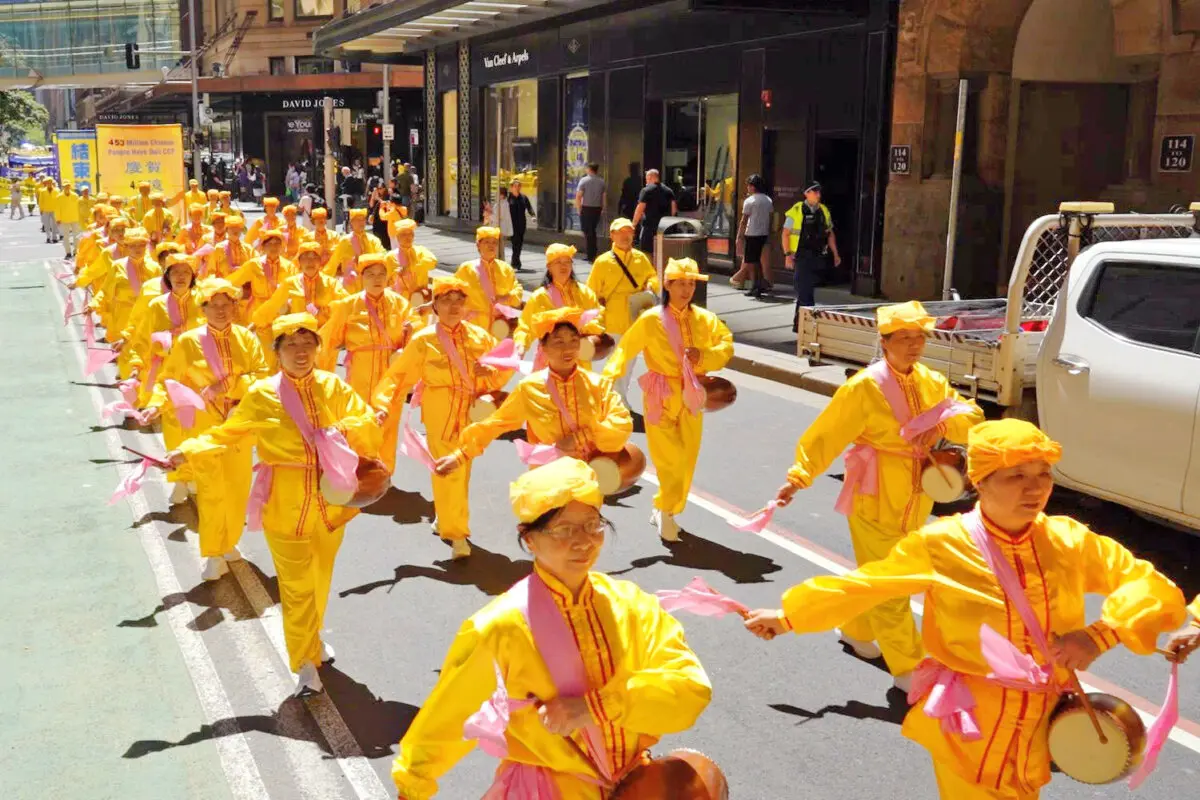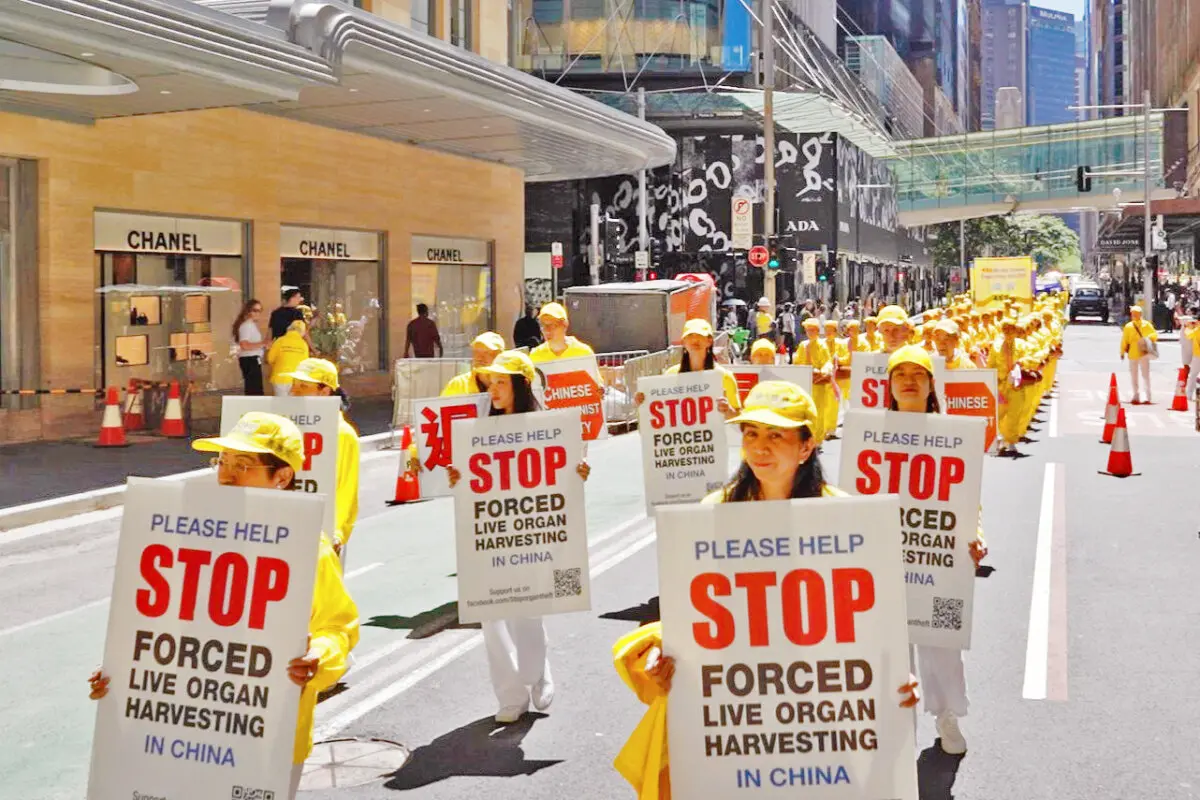SYDNEY—In her teens, Amy Duncan tried to fill a growing sense of emptiness with parties and distraction. Then one day, a quiet set of meditative exercises brought her something she didn’t expect: peace.
Duncan, a disability support worker from Sydney, shared her experiences during a major national gathering of Falun Gong practitioners from across Australia on the weekend of Oct. 10.
“I remember back then, in my late teens, I felt like something was missing in my life,” Duncan told The Epoch Times.
“I was living a very ordinary life of a Western teenager. I was partying, I was drinking, I had all of the freedoms, but I felt the more I went down that path, the more it just led to feelings of emptiness.
“Then I was searching for something to fill that emptiness, and I tried a few different things, but it did not quench my thirst for what I was looking for.”
A Beacon Amid a Sea of Loneliness
Duncan’s story as a young Australian is not unique.
Nearly two in five Australians aged 18 to 24 experience loneliness amid a slew of other mental conditions, with many reporting a persistent feeling of social disconnection, according to the “Young people and loneliness policy report” published in November 2024 (pdf).
“Loneliness is linked to a wide range of negative health and social outcomes, including poor mental and physical health, reduced social connection, and increased risk of premature death,” the report says.
“Rates have been steadily increasing since 2008, with recent jumps and again during the COVID-19 pandemic lockdown periods.”
The research, conducted by youth mental health research group Orygen, even found that the “smartphone” generation—characterised by 24-7 connectivity—feel less connected, have less face-to-face interaction, and even feel lonely in the company of their peers.
Duncan recalled she was first introduced to Falun Dafa by a group of local Australians.
“The first time I did the Falun Dafa exercises, I felt this warm rush of energy through my body,” she said.

“Then once I started to read the [practice’s spiritual texts], I really understood what it was, and I felt very, very grateful and blessed to find what I had been searching for, and to fill the hole,” she added.
“I think it can benefit anyone who has the heart to learn it,” she said. “We don’t have any rituals, any worships. We don’t have any hierarchy. There’s no money involved in the practice. It’s free for anyone to come and go as they wish.”
Falun Dafa, also known as Falun Gong, is a spiritual practice that combines meditative exercises with teachings rooted in the principles of truthfulness, compassion, and tolerance.
Introduced to the public in China in 1992, it quickly gained widespread popularity. By 1999, official estimates reported that at least 70 million people in the country had adopted the practice.
Perceiving the popularity of the practice as a threat to its rule, former Chinese Communist Party (CCP) leader Jiang Zemin launched a violent persecution against Falun Gong practitioners in China in July 1999. The persecution involved various atrocities, including forced organ harvesting, which continues to this day.
Despite the ongoing persecution, which often extends overseas in the form of transnational repression, people in over 100 countries have taken up the practice and are working to counteract the CCP’s propaganda about it.
Entrepreneur Finds ‘Best Version’ of Himself
Mark Hutchison, the founder of Lifewood floors, flew across the country from Perth, Western Australia, for the parade to “showcase the beauty of [Falun] Dafa.”
Talking about his experience, Hutchison said he was introduced to Falun Dafa by his two brothers.
“I picked up the book and I went down the exercises, and within three months, my illness was cured,” Hutchison told NTD Television, sister media to The Epoch Times.

The entrepreneur said he also benefited mentally.
“It’s very easy to get trapped in the materialistic world ... Let’s say I certainly wouldn’t have been the best version of myself,” he said.
“Truly. It’s not being a millionaire, it’s not looking great, it’s not all of those things. It’s actually who you are. I’m very, very grateful to have actually got Falun Dafa in my life.”
On Oct. 10, the Falun Gong community held a march through the busy Sydney CBD to raise awareness of the practice, as well as the CCP’s ongoing persecution against it.
The next day, practitioners gathered at Jubilee Park by the waterfront, and dressed in colorful attire, formed a gigantic “Falun” pattern.
The Falun or “law wheel,” includes traditional Chinese symbols like the Buddhist “srivatsa” and Taoist “taiji” symbols—it’s the official symbol of the practice.Australian Government Should Do More: Resident
Liz, a Sydney resident who chose to withhold her surname, watched the parade on Oct. 10.
“[I] very much support what you’re doing and want to see the end of the persecution of the Chinese Communist Party,” she told The Epoch Times.
Liz has a friend who told her a lot about the persecution of Falun Gong, which is still happening in China.
“I think it’s really terrible,” she said.

Liz believes the Australian government should show more concern on the human rights violations against Falun Dafa practitioners in China.
“They should sort of worry more about humanity and what’s happening to the people,” she said.
“I think they should have a bigger voice and say, ‘No, you can’t be oppressing people the way that you are.’”









